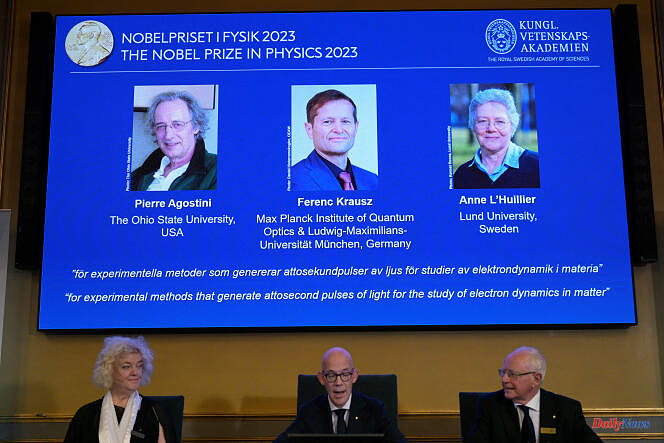The 2023 Nobel Prize in Physics was awarded on Tuesday October 3, jointly to the French researcher Pierre Agostini, the Franco-Swedish atomic physics professor Anne L’Huillier and the Austrian and Hungarian physicist Ferenc Krausz.
They were rewarded for their work on attosecond physics and ultrafast lasers, which make it possible to create "very short laser pulses to follow the ultra-rapid movement of electrons inside molecules", explains Lars Broström, scientific specialist at Swedish public radio SR. The attosecond is currently the smallest measurable unit of time (one billionth of a billionth of a second).
Anne L’Huillier had already won the prestigious Wolf Prize in 2022, sometimes a precursor to the Nobel, jointly with the Austrian and Hungarian physicist Ferenc Krausz and the Canadian Paul Corkum.
Before Anne L'Huillier, only four women had won the Nobel Prize in physics since 1901: Marie Curie (1903), Maria Goeppert Mayer (1963), Donna Strickland (2018) and Andrea Ghez (2020).
Before Tuesday's announcement, three of the last six Nobel Prizes in physics rewarded physicists working "in astronomy, astrophysics and cosmology", notes the magazine Physics World, which considers it unlikely to see the winners awarded this year. work associated with the discoveries of the James Webb Space Telescope.
Last year, the Swedish Academy rewarded the Frenchman Alain Aspect, the American John Clauser and the Austrian Anton Zeilinger, pioneers of the revolutionary mechanisms of quantum physics.












